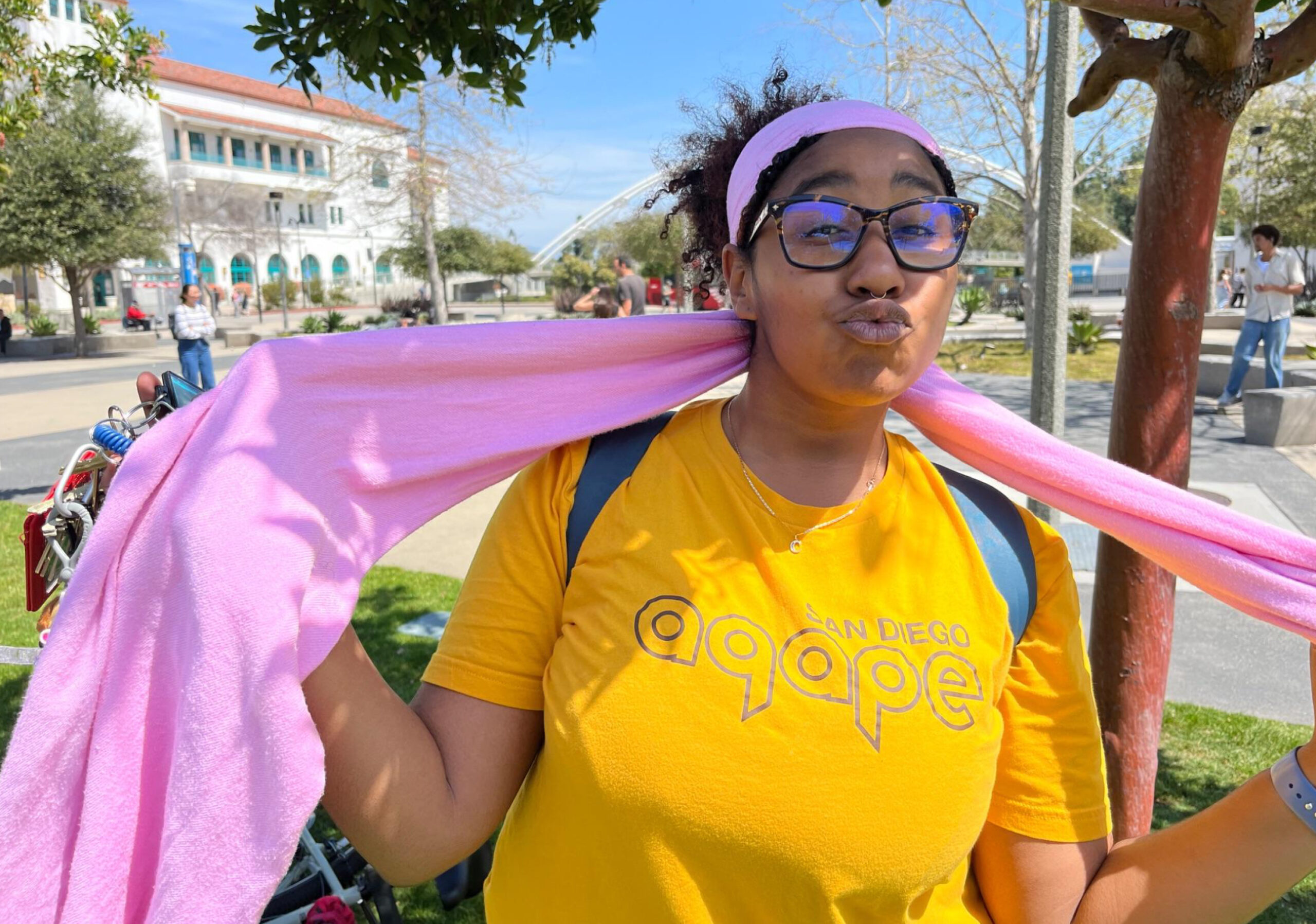Courageous Love Grants | Evangelism 101 | Beginners Guide | Recommended Reading | Other Resources
Courageous Love Evangelism Grants
These grants are made possible by the generous donors to the Courageous Love Campaign. The funds raised through this campaign will support the efforts of EDSD’s strategic plan to strengthen congregations, serve our neighbors, and grow the church. Our strategic plan calls us to equip Episcopalians to share God’s love and Christ’s Good News with people who may not know him. Through this, we fulfill Jesus’ great commission by increasing the number of Episcopalians in the diocese. These grants are available throughout the year.
The focus will be on projects that:
- Establish missional expressions among military, college campuses, and other communities
- Increase congregational membership and average weekly attendance
- Engage congregational discipleship programs and resources (e.g. small groups)
- Events where half of the participants are not members of your congregation
- Start worship services that reach a new population
- Improve congregational outreach and invitation practices
- Underwrite community outreach events
Applicants will be expected to:
- Define their evangelism project
- Demonstrate how community demographics have impacted this project
- Describe previous efforts and experience related to this project
- Explain how effectiveness will be gauged
- Demonstrate how the congregation will contribute to the project
- Provide a project budget
- Describe how the project will be supported after grant funds are used
A congregation’s vestry or bishop’s committee must approve a project before a request is reviewed. Once a request is submitted, the bishop’s office and executive council will review the application. A bishop’s staff or executive council member may contact you for clarification on your application if needed. When a decision is made, a bishop’s staff or executive council member will contact you. If you receive a grant, you will be asked to provide periodic updates to the bishop and executive council and contribute to an article for the diocesan news after the completion of the grant.
If you need inspiration for your evangelism efforts, we recommend reviewing projects shared at these Episcopal websites:
EDSD.org | EpiscopalChurch.org | ECFVitalPractices.org | EES1862.org
If you have any questions, don’t hesitate to contact Jason Evans, Canon for Mission, at jevans@edsd.org.
Episcopal Evangelism 101
EDSD’s Evangelism 101 course explores a non-anxious form of evangelism rooted in the Episcopal tradition. Students will discuss the theological roots of the gospel and how to lead a congregation toward evangelistic practice by example. Those that finish the course may be nominated for lay evangelist licensing.
Click here for more information.
Beginners Guide
Evangelism is the act of sharing the story of Jesus’s good news in our lives, our congregations, and in the world around us. Christians throughout history have believed that God changes lives. The word “metanoia” is used in Scripture to mean a complete change of mind, heart, or way of life in response to what God has done. Here you will find resources and principles to assist you and your faith community in sharing the good news.
Get to know your own story. Evangelism begins by noticing the good news of God’s presence in your life.
Examen: The examen is a simple prayer practice that cultivates your awareness of God’s activity in your life. You can find more information on the examen here.
Testimony: Sharing your “testimony” means sharing the story of Jesus’s good news in your life with others. To find a brief tutorial for sharing your good news story click here.
Get to know the story of those around you. Once you understand God’s activity in your own life, you will begin to notice at work in the world around you. EDSD resources found on the community engagement section of our website will help you learn more about your neighborhood and discover the good news of what God is doing there.
Inviting others into God’s story. Every week in every congregation, the good news of Jesus is shared. Inviting people to church is sharing God’s good news! Use Invite Welcome Connect‘s Invite Checklist to see where your faith community can improve your invitation to others.
Practicing hospitality. When you experience a warm welcome, you are more open to hearing good news. Use Invite Welcome Connect‘s Welcome Checklist to improve hospitality practices in your faith community. If you want to go even further, conduct a complete assessment of welcome practices at your church with Community Activators’ Creating Welcoming Places Workbook.
Integrating others into God’s story. Of course, you hope that those who are invited to visit your congregation stick around and become a part of the community. Use Invite Welcome Connect‘s Connect Checklist to assess how well your congregation integrates visitors. To find out more about EDSD’s lay licensed evangelist process click here.
Recommended Reading
A Credible Witness by Brenda Salter McNeil
Transforming Evangelism by David Gortner
No Longer Strangers ed. Eugene Cho & Samira Izadi Page
Unbinding the Gospel by Martha Grace Reece
Surprise the World! by Michael Frost
Other Resources
Easter Invitation: An Evangelism Refresher is a 1.5-hour EDSD online class offered on March 5, 2024. Easter–like Christmas–provides congregations with a unique possibility to invite neighbors, friends, and family to celebrate. Materials from this class, including a video recording of the class, are available year-round. To explore this resource click here.
Embracing Evangelism is a six-part digital course exploring our call to seek, name, and celebrate Jesus’ loving presence in the stories of all people – and then invite everyone to more. Each session features teachings on Episcopal evangelism, group discussion, and exercises to help Episcopalians understand the ministry and call to evangelism. The full Embracing Evangelism series consists of six video sessions, each under 45 minutes. To learn more click here.
Invite Welcome Connect (IWC) is guided by the gospel imperative to “Go and make disciples of all nations,” the ministry of Invite Welcome Connect equips and empowers individuals and congregations to practice evangelism, hospitality, and connectedness. Find IWC’s toolkit and other resources here.
MissionInsite is an online demographic study tool created to assist congregations in understanding their “reach” into the community around them. The Diocese of San Diego is providing this resource to each congregation free of charge. If you are leader from a congregation within the diocese, you can set it up your account under the Diocese of San Diego here. Our agency registration code is 3353D. For a brief tutorial on how to use MissionInsite click here.
The Neighboring Movement believes that an asset-based approach to neighboring can create lasting change in the world, reduce a host of social issues and increase the quality of life for individuals, communities, and beyond. Get tips to help you and your church be better neighbors and take their neighboring quiz to see what kind of neighbor you.
Unbinding the Gospel is a Lilly Endowment project that supports congregations with coaching and research for faith development and faith sharing. Find the book series and other resources here.
EDSD News Evangelism

5 Tips for Invite a Friend to Church Sunday
When we love something, we share it with our friends and family; like a new show on Netflix or a great restaurant in the neighborhood, we can’t help but share […]

Invite a Friend to Church Season
Is “Invite a Friend to Church” an actual season on the Church calendar? No, but Bishop Susan is inviting all our congregations to participate in a month-long season of inviting […]

Sharing Jesus One Pizza Slice at a Time
We are here because Jesus invites us to bring rest to the weary and food to the hungry. Both apply to SDSU students. College is a transformative time. College students […]

Let’s Talk Lay Licensing
At baptism, we are all invited into a shared ministry of spreading the Good News of Jesus Christ with the world. Some areas of ministry require greater care. Eucharistic Visitors, […]




